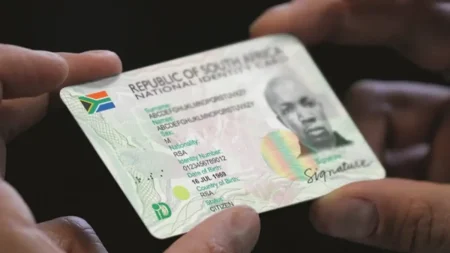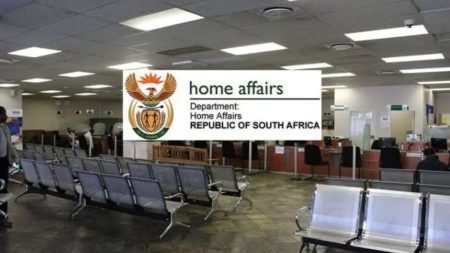If you or someone close to you has been involved in a road accident in South Africa, seeking compensation from the Road Accident Fund (RAF) is a natural step. The RAF compensates individuals for damages related to road accidents, including medical expenses, lost income, and more. However, many claims end up rejected, leaving claimants without the assistance they need. To improve your chances of a successful outcome, it’s crucial to understand the reasons for RAF claim rejections and how to avoid these common pitfalls.
Understanding the Road Accident Fund (RAF)
The RAF is a government fund established to provide financial relief to victims of road accidents. This fund covers claims for anyone not solely responsible for the accident, including drivers, passengers, and even pedestrians.
Claiming from the RAF can help recover various expenses resulting from the accident, but with strict guidelines, many claims don’t make it through.
Related: Common Misconceptions About the Road Accident Fund: Debunking Myths
Common Reasons for RAF Claim Rejections
Knowing the reasons for RAF claim rejections can prepare you to submit a stronger claim and avoid common mistakes. Here are the top reasons claims get denied, along with tips to avoid them.
1. Late Submission of Claims
- Reason for RAF Claim Rejection: One major reason for rejections is late submission. Claims should be filed within specific timeframes—two years if the driver is known and three years for unknown drivers (like in hit-and-run cases). Missing these deadlines almost always results in rejection.
- How to Avoid This: Begin the claims process as soon as possible after the accident. Collecting documentation and consulting with a legal expert promptly can ensure your claim is filed on time.
2. Incomplete or Inaccurate Documentation
- Reason for RAF Claim Rejection: Incomplete or inaccurate documentation, such as missing accident reports, medical records, or financial statements, often leads to rejections.
- How to Avoid This: Make sure that all your documents are in order and filled out correctly. It’s wise to work with a qualified legal professional who can help review your documents for completeness and accuracy. Double-check each item to avoid overlooking any required detail.
3. Unclear Liability
- Reason for RAF Claim Rejection: The RAF must determine who was at fault for the accident. If liability is unclear, your claim may be rejected because the RAF does not compensate those who were solely at fault.
- How to Avoid This: Provide a detailed police report and obtain witness statements to clarify liability. Photographic evidence from the accident scene can further support your claim and help establish fault.
4. Lack of Medical Evidence
- Reason for RAF Claim Rejection: Medical evidence is critical to prove the extent of injuries caused by the accident. Without proof of injury, RAF often rejects the claim for insufficient documentation.
- How to Avoid This: Visit a medical professional immediately after the accident to document all injuries. Keep copies of medical records, including diagnoses, treatment plans, and any specialist recommendations. All medical expenses should be backed up with invoices and receipts.
5. Underestimating the Claim Amount
- Reason for RAF Claim Rejection: If your claimed amount does not accurately reflect the damage or expenses you’ve incurred, RAF may question the claim’s validity and may reject it outright.
- How to Avoid This: Work with a legal expert to calculate your claim accurately. Include all costs, such as medical bills, lost income, future healthcare needs, and other damages related to the accident. This will ensure your claim reflects the true financial impact.
6. Not Following RAF’s Procedures
- Reason for RAF Claim Rejection: The RAF has specific claim procedures. Ignoring these procedures or failing to follow instructions properly can lead to rejections.
- How to Avoid This: Familiarize yourself with the RAF’s claim process, including deadlines, documentation requirements, and procedural steps. Consulting an RAF claims expert is advisable to ensure that you understand and meet all requirements.
7. Insufficient Proof of Loss of Income or Financial Hardship
- Reason for RAF Claim Rejection: Claims often include compensation for lost income if the accident resulted in a reduced earning capacity. If there is no evidence to support this financial hardship, the RAF may reject the claim.
- How to Avoid This: Submit evidence of income loss, such as payslips, tax records, or letters from your employer. Include documents showing how your injuries affect your ability to work.
8. Fraudulent Claims or Exaggerated Damages
- Reason for RAF Claim Rejection: Fraudulent claims or exaggerated damages are a serious offense to the RAF. Claims that appear suspicious or inflated can result in rejection and legal consequences.
- How to Avoid This: Be honest and accurate when submitting your claim. Ensure that all costs and damages included in your claim are legitimate. Fraudulent claims not only harm your case but may also lead to severe penalties.
Tips for a Successful RAF Claim Submission
To increase your chances of avoiding these reasons for RAF claim rejections, follow these practical tips:
- Seek Legal Advice – A legal professional experienced in RAF claims can be invaluable. They can help gather necessary documents, calculate damages accurately, and guide you through each step.
- Act Quickly – Don’t wait to start the claims process. Deadlines are strict, and starting early allows you to gather documents, get medical evaluations, and follow procedures without unnecessary pressure.
- Document Everything Thoroughly – Proper documentation is your best tool in avoiding the reasons for RAF claim rejections. Be meticulous with medical records, accident reports, witness statements, and financial documents.
- Clearly Outline Financial Impacts – If the accident has affected your income or finances, provide all relevant financial documents. Invoices, receipts, pay slips, and employment records will support your claim and minimize the chances of rejection.
- Be Accurate with Claim Amounts – A well-calculated claim shows the true financial burden caused by the accident. Avoid exaggerations and instead focus on realistic calculations of medical, economic, and emotional impacts.
- Be Patient and Persistent – RAF claims can take time. Stay proactive in following up on your claim’s progress with RAF and your legal advisor to keep things on track.
Summary
Understanding the common reasons for RAF claim rejections can help claimants avoid costly mistakes. Whether it’s filing on time, providing complete documentation, or proving financial losses, each step in the claims process requires careful attention. By knowing these pitfalls and taking proactive measures, you can increase your claim’s chances of success.
The RAF is a critical resource for South Africans in need of compensation after a road accident. However, its procedures are complex, and mistakes can easily lead to rejections. Consulting with a legal professional, organizing all necessary documents, and following the correct process are the best ways to ensure your claim is successful.










